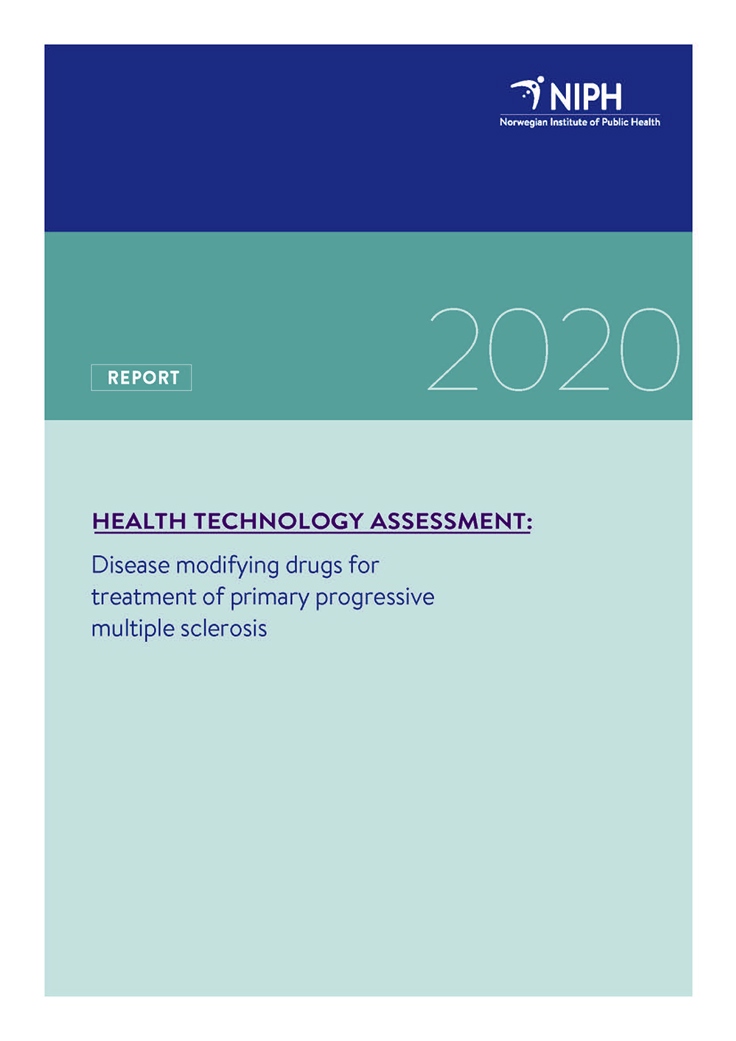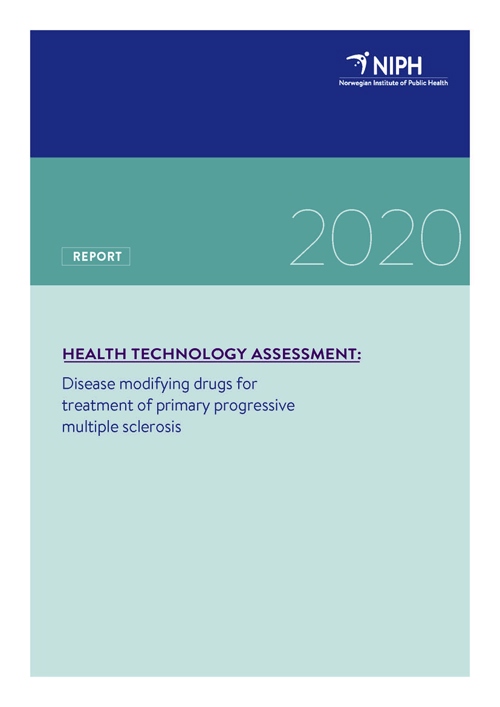Disease modifying drugs for treatment of primary progressive multiple sclerosis: A health technology assessment
Health technology assessment
|Published
|The objective for this health technology assessment was to evaluate clinical efficacy and cost effectiveness for disease-modifying drugs for the treatment of primary progressive multiple sclerosis (PPMS).
Key message
We have systematically collected and reviewed the evidence for clinical efficacy for disease modifying treatments for PPMS.
We included three randomised placebo-controlled trials that each compare the effect of one medication (either fingolimod, ocrelizumab or rituximab, respectively) with placebo. For each of the three drugs, we calculated the risk ratios for confirmed disease progression. We also report results in the form of hazard ratios.
Our results show that ocrelizumab and rituximab may reduce the risk of confirmed disease progression more than placebo. In total, the results do not give us good reason to assume that one drug is better than the other.
Fingolimod may also reduce the risk of confirmed disease progression, although to a lesser degree than for ocrelizumab and rituximab. We find these results to be less convincing than for ocrelizumab and rituximab.
We have not conducted a full health economic evaluation as we do not have strong reasons to believe that one specific drug is better or worse than the other, and because rituximab is substantially less costly than the two other treatments.

